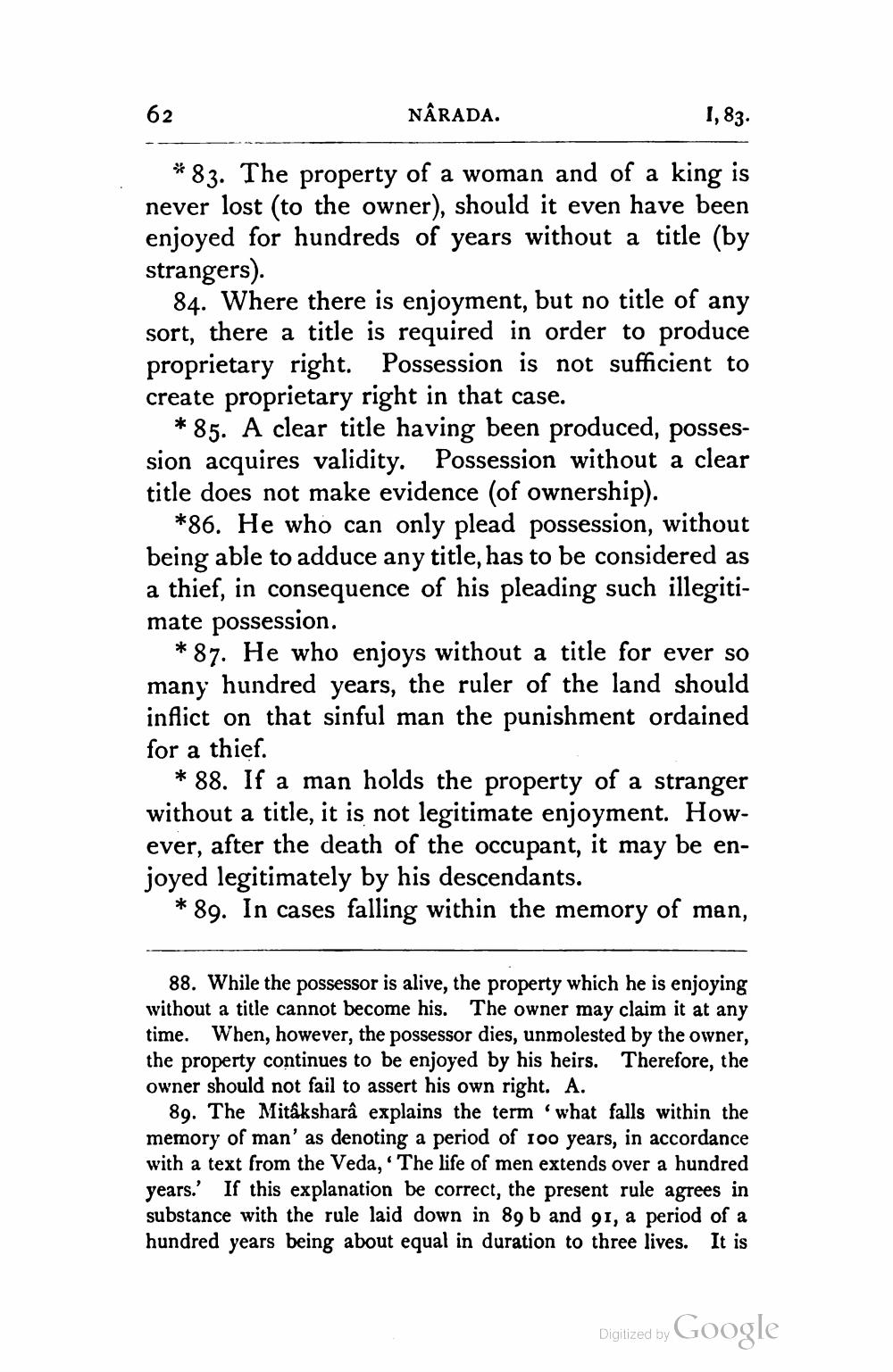________________
NÂRADA.
1,83
*83. The property of a woman and of a king is never lost (to the owner), should it even have been enjoyed for hundreds of years without a title (by strangers).
84. Where there is enjoyment, but no title of any sort, there a title is required in order to produce proprietary right. Possession is not sufficient to create proprietary right in that case.
*85. A clear title having been produced, possession acquires validity. Possession without a clear title does not make evidence (of ownership).
*86. He who can only plead possession, without being able to adduce any title, has to be considered as a thief, in consequence of his pleading such illegitimate possession.
*87. He who enjoys without a title for ever so many hundred years, the ruler of the land should inflict on that sinful man the punishment ordained for a thief.
*88. If a man holds the property of a stranger without a title, it is not legitimate enjoyment. However, after the death of the occupant, it may be enjoyed legitimately by his descendants.
*89. In cases falling within the memory of man,
88. While the possessor is alive, the property which he is enjoying without a title cannot become his. The owner may claim it at any time. When, however, the possessor dies, unmolested by the owner, the property continues to be enjoyed by his heirs. Therefore, the owner should not fail to assert his own right. A.
89. The Mitaksharâ explains the term 'what falls within the memory of man' as denoting a period of 100 years, in accordance with a text from the Veda, 'The life of men extends over a hundred years. If this explanation be correct, the present rule agrees in substance with the rule laid down in 89 b and 91, a period of a hundred years being about equal in duration to three lives. It is
Digitized by Google




